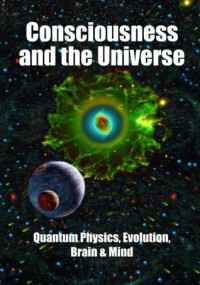
Astrobiological Neurosystems: Rise and Fall of Intelligent Life Forms in the Universe
Jerry L. Cranford
This book explains why scientists believe that life may be more common in the Universe than previously considered possible. It presents the tools and strategies astronomers and astrobiologists are using in their formal search for habitable exoplanets as well as more advanced forms of life in other parts of our galaxy. The author then summarizes what is currently known about how and where organic molecules critical to our form of carbon-based life are manufactured.
The core of the book explains (and presents educated guesses) how nervous systems evolved on Earth, how they work, and how they might work on other worlds. Combining his knowledge of neuroscience, computers, and astrobiology the author jumps into the discussion whether biological nervous systems are just the first step in the rise of intelligence in the Universe.
The book ends with a description from both the psychologist’s and the neuroscientist’s viewpoints, exactly what it is about the fields of astrobiology and astronomy that “boggles the minds” of many amateur astronomers and interested non-scientists.
This book stands out from other popular science books on astrobiology by making the point that “astro-neurobiologists” need to begin thinking about how alien nervous systems might work.
The core of the book explains (and presents educated guesses) how nervous systems evolved on Earth, how they work, and how they might work on other worlds. Combining his knowledge of neuroscience, computers, and astrobiology the author jumps into the discussion whether biological nervous systems are just the first step in the rise of intelligence in the Universe.
The book ends with a description from both the psychologist’s and the neuroscientist’s viewpoints, exactly what it is about the fields of astrobiology and astronomy that “boggles the minds” of many amateur astronomers and interested non-scientists.
This book stands out from other popular science books on astrobiology by making the point that “astro-neurobiologists” need to begin thinking about how alien nervous systems might work.
Κατηγορίες:
Έτος:
2014
Έκδοση:
2015
Εκδότης:
Springer
Γλώσσα:
english
Σελίδες:
204
ISBN 10:
3319104187
ISBN 13:
9783319104188
Σειρές:
Astronomers' Universe
Αρχείο:
PDF, 7.07 MB
IPFS:
,
english, 2014
Αυτό το βιβλίο δεν είναι διαθέσιμο για λήψη λόγω καταγγελίας του κατόχου των πνευματικών δικαιωμάτων
Beware of he who would deny you access to information, for in his heart he dreams himself your master
 Μετατροπή αρχείων
Μετατροπή αρχείων Περισσότερα αποτελέσματα αναζήτησης
Περισσότερα αποτελέσματα αναζήτησης Λοιπά πλεονεκτήματα
Λοιπά πλεονεκτήματα 




















































